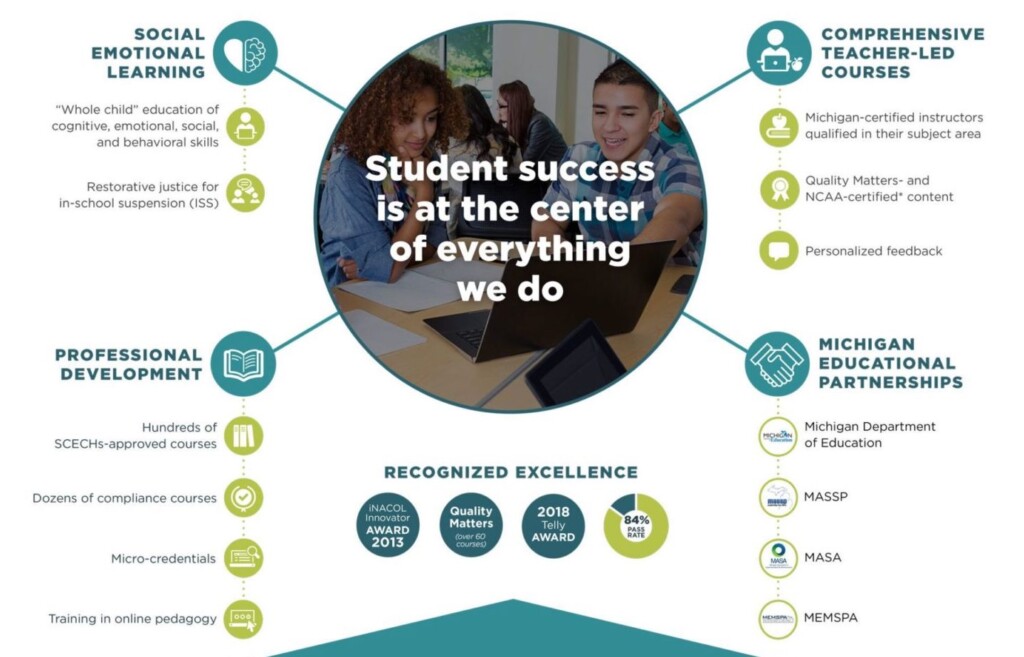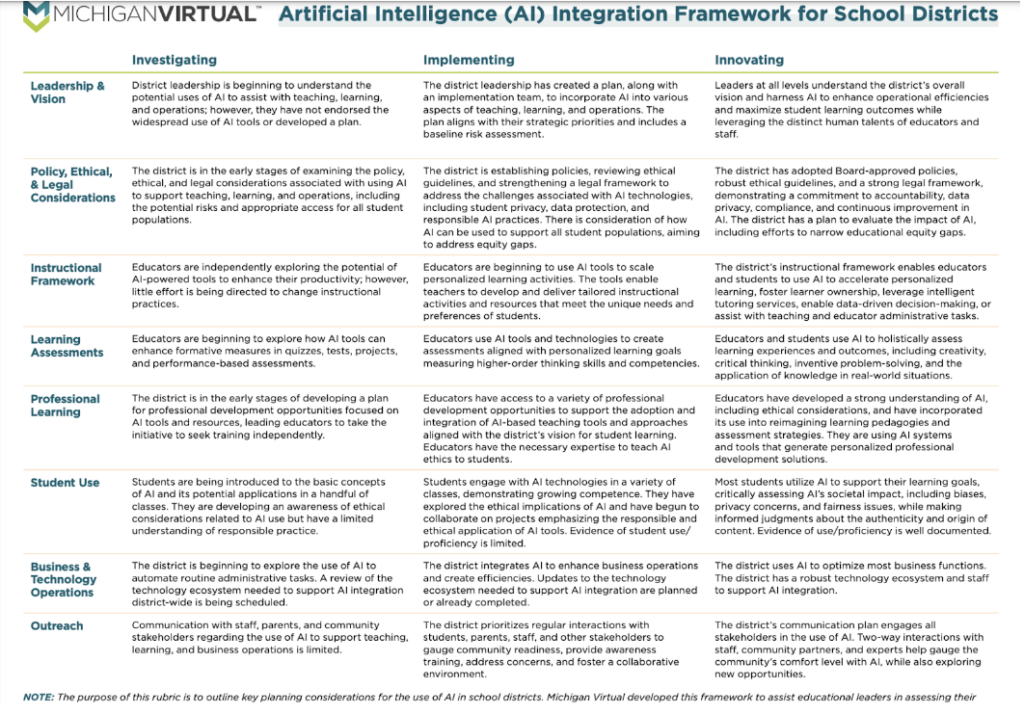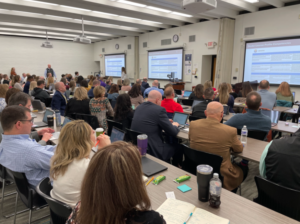One State’s Approach to AI Integration and Rapid Reskilling
Key Points
-
Intentionally structuring AI adoption is a critical part of ensuring few pitfalls and oversights.
-
We must leverage the momentum of AI to help us build future-ready learning models that serve ALL students.

Michigan Virtual, has been working hard to provide a path to the future for students and educators since 1998. As a part of this commitment, they have unveiled recent AI Guidance and implementation suggestions that highlight the vast number of challenges and opportunities facing school leaders when handling technology.
AI Integration Framework
Their AI Integration Framework breaks the progression of adoption into three distinct stages, investigating, implementing and innovation.
Progression Stages:
- Investigating involves initial exploration and understanding, with limited AI applications.
- Implementing sees schools actively integrating AI, with a focus on ethical considerations, targeted learning activities, and foundational AI infrastructure.
- Innovating signifies a mature AI adoption, with advanced applications, comprehensive policies, and holistic assessments using AI. The innovating column also emphasizes how AI can support bolstering student ownership.
The framework then applies these stages across a variety of fields: Leadership & Vision, Policy Considerations, Instructional Framework, Learning Assessments, Professional Learning, Student Use of AI, Business & Technology Operations, and Outreach. Each is a great opportunity for innovating in new ways.

Planning Guide for AI
Supplementing the framework, they have released a planning guide for AI which starts off with four distinct directives for school leaders to responsibly engage with AI: engage in planning, make it local, dedicate a team and address potential concerns. Throughout, they make the case for using AI as an augmentation tool, not a replacement tool, and suggest that it can support “uniquely human tasks,” “promoting student agency” and developing “new learning models.” We also appreciate the call for helping students to both understand and utilize the technology. Each section is then followed by a suite of potential risks of adoption and integration, which seeks to anticipate some of the potential pitfalls and roadblocks of the coming transition.
Additionally, the team has announced a series of workshops, courses and trainings to support school leaders in their adoption, their understanding and their ability to form their own strategies for embracing the new learning landscape.
All of these contributions add to the great information emerging from orgs like TeachAI and AI for Education.
A Statewide Culture of Innovation
This is not the first time Michigan Virtual has led the charge toward innovation. For 25 years, the statewide virtual school has partnered with school districts. They sponsored The Future of Learning Council (FLC), a cohort of 40 unique school districts and learning organizations.
“The Council members are thought leaders who represent a powerful ‘coalition of the willing’ who embrace change and recognize the value of flexible, personalized, and competency-based learning systems that are high-touch and high-tech. We are excited to provide the administrative backbone and meeting facilities to support the Council’s functions,” said Jamey Fitzpatrick, President of Michigan Virtual.
For more on the transformational change happening in Michigan:




0 Comments
Leave a Comment
Your email address will not be published. All fields are required.